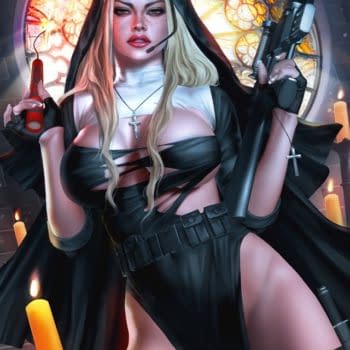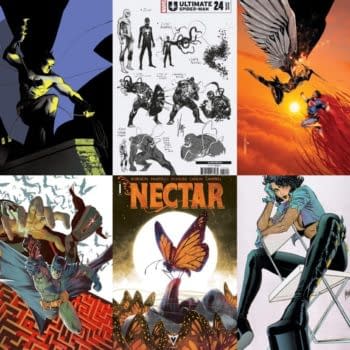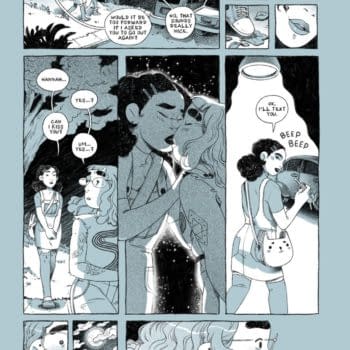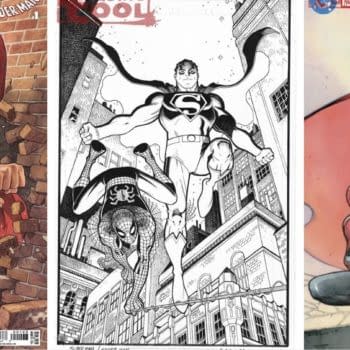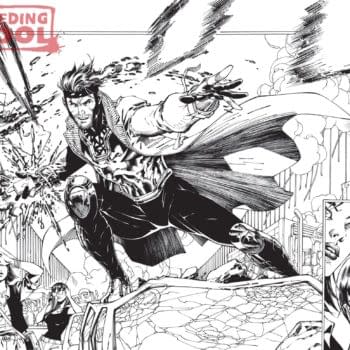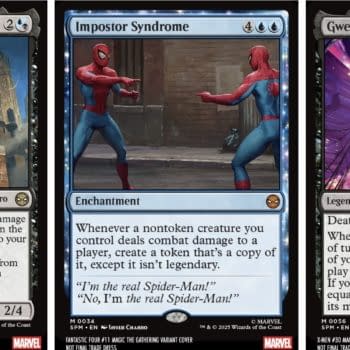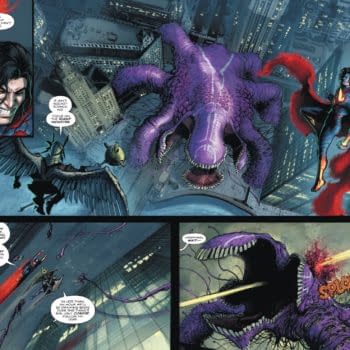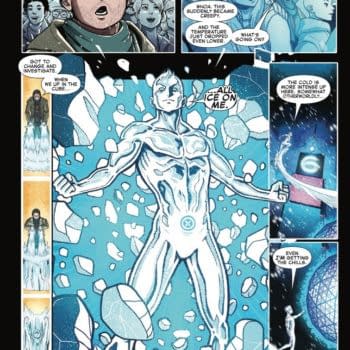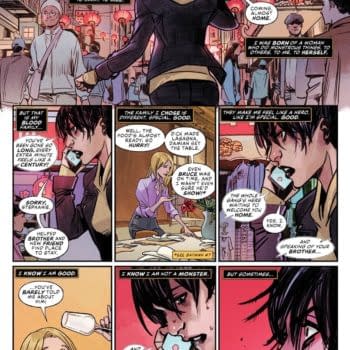Posted in: Comics | Tagged: Comics, entertainment
Multiple Publisher Disorder – The History Of Barry Windsor-Smith's Hulk, Big Red, Monster And Monsters
In 1984, Bill Mantlo wrote an issue of The Hulk that explored the history of Bruce Banner, revealing the Hulk to be an expression of what was then dubbed schizophrenia, now dissociative identity disorder and more commonly multiple personality disorder. Peter David credits him for inspiring his own work on the character, which became so seminal, defining the character for a generation.
There has been some discussion however regarding how much Mantlo was inspired by an unfinished Hulk story of the time called Thanksgiving by Barry Windsor-Smith, which also portrayed the Hulk as a result of abuse Bruce Banner suffered as a child, and was also pitched in 1984, thus:
Employing a battered and disconsolate childhood as the springboard for the modern-day Bruce Banner's anti-social and violent attitudes, the story explores the damage caused by mismatched parenthood and effects of the Second World War on the heart and mind of the veteran Tom Banner. Bruce Banner, an 11-year-old in 1950, is represented as the full grown, seven foot Hulk throughout this fantasy. The story is called Thanksgiving and details the tensions the Banner household suffers when it becomes apparent that the family dinner, planned with eight relatives in mind, falls apart as one by one, brothers, sisters and in-laws cancel the visit with feeble excuses.
The truth is that Tom Banner has alienated his family with his explosive, argumentative temper.
Some state that Mantlo simply stole the idea, and that seems to have been Windsor-Smith's interpretation. But talking to industry figures, the consensus seems to be that Mantlo didn't steal it, but was referring to it. Knowing the story existed, presuming it would be published by the time his issue was out, and referring to it when writing his own. Expanding upon the original idea, with his own concepts of three externalised figures, Guardian, Goblin and Glow, representing Freudian aspects of the Hulk and Banner's mind, conjured up by the Crossroads world around him.
Of course, the Windsor-Smith Hulk story hadn't been finished – and it still hasn't. Pulling the book from Marvel, it continued to grow as Windsor-Smith changed its details and central figures and took it elsewhere.
First to Dark Horse Comics where it would have been called Big Red, but he fell out with publisher Mike Richardson over the Storyteller series that Dark Horse was publishing, so that was that.
He took the projects to DC Comics, where it would have been recreated with new characters as a graphic novel, Monster. However, that project failed as a result of both Karen Berger and Paul Levitz refusing to allow Windsor-Smith to use certain language. In the original Marvel pitch, and what may have doomed it at the publisher, Windsor-Smith had said,
It is of considerable importance to point out that this somewhat extraordinary story requires the use of what the comic book publishing world might consider profanity.
The terms I need to use in the script (all spouting from the paranoiac and drunken Tom Banner) are actually mild when paralleled to other – perhaps more sophisticated – media such as film, print and (at this date) television.
To cut to the quick: I need to employ the following terms: Goddam Bitch Hall (as in "Like Hell you will") Slut
These are comparatively mild terms, in my opinion. I've edited it down from stronger, more believable coinage. The upshot is that for this story to have IMPACT, it must be published in the standard format (The Incredible Hulk) and without any special fanfare (I brought what could have been a 30-odd page story down to 22 for this very reason). Approval – within Marvel and to the satisfaction of the Comics Code Authority – is paramount and I'm prepared to offer any raison d'etre if it isn't apparent.
But now, away from the Hulk and Marvel, he wanted to go further, specifically to use the word "c-nt" in the new story – having the Banner father character telling the Banner mother character to get dressed to "cover up the c-nt". Windsor-Smith stressed the importance of the choice of words, the father dehumanising the mother. At the time this was beyond DC Comics willingness to publish, certainly beyond Levitz and Berger's sensibilities at the time and when DC/Vertigo first published a comic with that word, it was only when the editor was very sick and, it is believed, simply missed it. There were also issues regarding the page length, now planned over 270 pages. So Windsor-Smith moved on.
Fantagraphics published his similarly-withdrawn X-Men story, Lifedeath III as the Storyteller spinoff, Adastra In Africa. It was hoped something similar could be achieved with Monster.
The book is currently dubbed Monsters, is still being worked on by Windsor-Smith and continues to be promised to be published. It is now over 300 pages in length. Previews can be read here and here.









